More in Economy
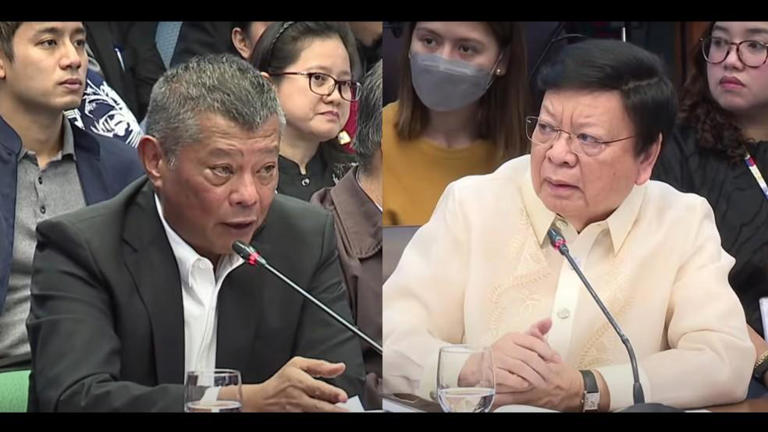
Senate Hearing Reveals Clash Over Justice and Law in Flood-Control Scam Probe
During a Senate Blue Ribbon Committee hearing investigating massive losses from fraudulent flood-control projects, Justice Secretary Jesus Crispin Remulla and Senator Rodante Marcoleta engaged in a heated confrontation that underscored contrasting interpretations of justice and legal principles. Remulla proposed that contractors seeking witness protection should be required to first return the public funds they allegedly misappropriated. In response, Senator Marcoleta vehemently opposed this notion, asserting that the law mandates restitution only after a party is proven guilty. He warned, \"Restitution can only come after guilt is established. Huwag ninyong babaguhin ang batas.\" Standing firm, Remulla argued his stance was rooted in upholding true justice rather than altering the law. He emphasized, \"This crime strikes at the very financial heart of the republic. The people deserve restitution, not just testimonies.\" Marcoleta retorted with a sharp warning, \"You may be disbarred from doing this.\" The exchange evolved into a broader debate between strict legal adherence and moral imperative. Remulla and his supporters cited widespread public outrage over the billions lost to fraudulent projects as justification for a more expansive application of witness protection. Senator Raffy Tulfo and Senator Erwin Tulfo echoed this sentiment, with Erwin stating, \"Sometimes you have to bend the law to please the people,\" while Raffy called for demonstrating goodwill to the public. Senator Francis Pangilinan referenced a recent case involving a former DPWH engineer who admitted to corruption and surrendered luxury vehicles as evidence that restitution, though not explicitly mandated by law, aligns with the ethical pursuit of justice. At the heart of the controversy is the staggering amount of money involved. The Department of Finance estimates losses of up to ₱118.5 billion since 2023, with environmental watchdogs suggesting figures near $18 billion. The scandal has already resulted in the removal of key legislative leaders and sparked widespread public protests. Whistleblowers, such as ex-Bulacan engineer Brice Hernandez, detailed how insiders allegedly divided profits from fictitious projects, fueling public anger. Beyond monetary losses and political fallout, the core issue remains whether legal statutes should be applied rigidly or flexibly to restore public trust. Marcoleta cautioned against permitting \"moral shortcuts\" that could undermine the rule of law, while Remulla and his allies contended that without restitution requirements, witness protection risks becoming a shield for corruption. Caught between these conflicting views are the Filipino people, torn between adherence to legal frameworks and a profound desire for justice and fairness. The hearings continue, but the confrontation between \"You may be disbarred\" and \"We will carry out our job as we deem fit\" may well influence both the resolution of the flood-control scandal and the broader direction of justice in a nation grappling with deep-rooted corruption.
Economy
|3 min read
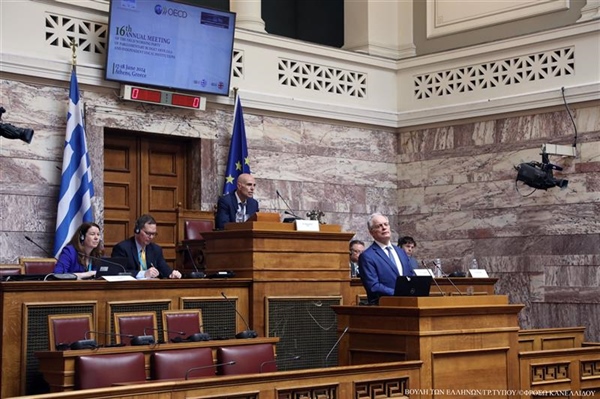
Ombudsman Launches Investigation Into COA Commissioner Over Spouse’s Government Contracts
The Office of the Ombudsman has confirmed to members of the House of Representatives that it is conducting an investigation into Commission on Audit (COA) Commissioner Mario Lipana. The move follows reports that Commissioner Lipana's wife, Marilou Laurio Lipana, is a contractor engaged in multiple government infrastructure projects. The confirmation was made during plenary discussions on the Ombudsman’s proposed 2026 budget on the morning of September 24. Deputy Minority Leader and ACT Teachers Party-list Representative Antonio Tinio questioned the status of the Ombudsman’s actions regarding Commissioner Lipana. "Has the Ombudsman taken any concrete steps regarding this COA commissioner?" Tinio asked during the debate, addressing Budget Sponsor and Quezon 4th District Representative Keith Micah Tan. Tan, who also serves as vice chairman of the Committee on Appropriations, responded, "As far as I am able to disclose, the Ombudsman is currently conducting an ongoing fact-finding investigation involving COA Commissioner Lipana." Expressing surprise, Tinio replied, "So the Ombudsman already has an ongoing investigation on Commissioner Lipana? That’s good to know." Marilou Laurio Lipana heads Olympus Mining and Builders Group Philippines as its president and general manager. The company reportedly holds nine active contracts with the Department of Public Works and Highways (DPWH) in Bulacan, including flood control projects and farm-to-market road developments. These projects have a combined value of approximately ₱326.6 million, with completed flood control works totaling ₱178.5 million. These disclosures arise amid widespread public outrage over alleged collusion between contractors and lawmakers in anomalous or "ghost" flood control projects, which purportedly generate millions in kickbacks at the expense of government funds. The situation raises concerns over conflict of interest and ethical standards, with Tinio calling for Commissioner Lipana’s resignation during budget committee hearings due to the apparent lack of delicadeza. Currently, Commissioner Lipana is undergoing medical treatment in Singapore and is expected to return only at the end of the month. Further developments came during the Senate Blue Ribbon Committee hearing on September 23, where former DPWH Bulacan district engineer Henry Alcantara testified that Commissioner Lipana had requested a list of flood control projects in Bulacan around 2022.
Economy
|2 min read
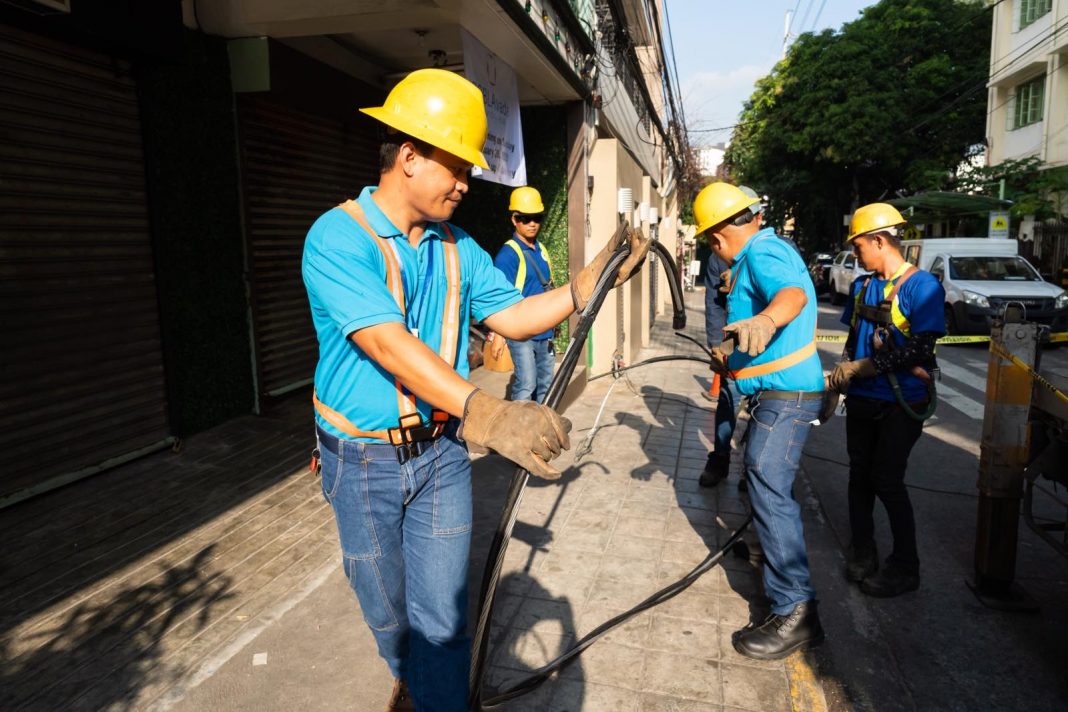
Meralco Nears Full Power Restoration Following Severe Monsoon Outages
The Manila Electric Company (Meralco) has nearly completed the restoration of power to customers impacted by widespread outages triggered by intense southwest monsoon rains and strong winds, exacerbated by Super Typhoon Nando (internationally known as Ragasa). "Our teams are working tirelessly around the clock and will continue until everyone affected has their power restored," stated Joe R. Zaldarriaga, Meralco Vice President and Head of Corporate Communications. As of 7:00 a.m., only about 1,700 customers in areas of Bulacan, Metro Manila, Batangas, and Cavite remain without electricity. Restoration efforts are ongoing with crews conducting final "mopping up operations." In anticipation of Tropical Storm Opong, which could intensify monsoon rains again, Meralco has heightened its preparedness. The company has implemented contingency plans, including advising billboard operators to temporarily retract tarpaulins to prevent wind-related hazards. "We are rigorously monitoring weather updates and ensuring our personnel and infrastructure are fully prepared. We urge the public to prioritize electrical safety, especially in flood-prone locations," Zaldarriaga added. Meralco urged households to follow essential safety precautions during flooding conditions: - Keep the main power switch or circuit breaker turned off. - Avoid touching electrical appliances or outlets with wet hands. - Unplug devices and turn off permanently connected equipment; remove light bulbs if feasible. - Use rubber gloves and rubber-soled shoes when cleaning electrical equipment contaminated with mud or debris. - Ensure all outlets, wiring, and electrical devices are completely dry before use. - Have a licensed electrician inspect appliances and electrical systems prior to reactivation. - Refrain from using electrical equipment that has been damaged by floods. Customers can report outages or other service issues through Meralco's official social media channels—Facebook (facebook.com/meralco), Twitter (@meralco), via text at 0920-9716211 or 0917-5516211, or through the Meralco Hotline at 16211.
Economy
|2 min read

Lawmaker Criticizes Ombudsman Over Handling of P15-Billion Anti-Corruption Funds Amid Flood Control Scam
During the House plenary session on September 24, Deputy Minority Leader and ACT Teachers Party-list Representative Antonio Tinio sharply criticized the Office of the Ombudsman for its apparent failure to effectively utilize its substantial P15-billion anti-corruption budget. He pointed to ongoing revelations of rampant corruption tied to flood control projects as evidence that anti-corruption efforts have fallen short. "You were entrusted with P15 billion supposedly for anti-corruption purposes. The people have one question: what happened to these funds?" Tinio questioned, underscoring the widespread and severe corruption witnessed in flood control initiatives. Tinio highlighted allegations involving officials from the Department of Public Works and Highways (DPWH), including reports of lavish spending on casino gambling, extravagant gifts among officials, and kickback schemes totaling hundreds of millions of pesos. He referenced claims made by former DPWH Bulacan district engineer Henry Alcantara during Senate Blue Ribbon Committee hearings and prior House Infrastructure Committee discussions. "Why has it taken so long for these misconducts to surface? Officials were reportedly wagering hundreds of millions in casinos, exchanging luxury vehicles, and funneling kickbacks to politicians. Just yesterday, we learned that kickbacks amounting to over half a billion pesos were linked to a single transaction involving a billiard table in a district engineer’s office," Tinio stated. In response, budget sponsor and Quezon 4th district Representative Keith Micah Tan defended the Ombudsman’s efforts, noting the complexity and volume of cases it handles. He explained that the office conducts discreet, fact-finding investigations to avoid interfering with ongoing legal proceedings. "The Ombudsman deals with a wide range of cases and carefully evaluates complaints to determine their validity before proceeding. They conduct investigations discreetly to prevent prejudging individuals and to not disrupt concurrent inquiries," Tan elaborated. However, Tinio remained unconvinced, expressing skepticism toward the so-called "discreet" nature of the Ombudsman’s investigations, noting the lack of any filed charges or admissions of guilt months into the scandal. "Isn’t it concerning that after several months, no official has been formally charged, despite admissions of overpricing, kickbacks, and ghost projects?" he asked. Despite the pointed exchange, the plenary debate on the Ombudsman’s 2026 budget concluded without further incident.
Economy
|2 min read
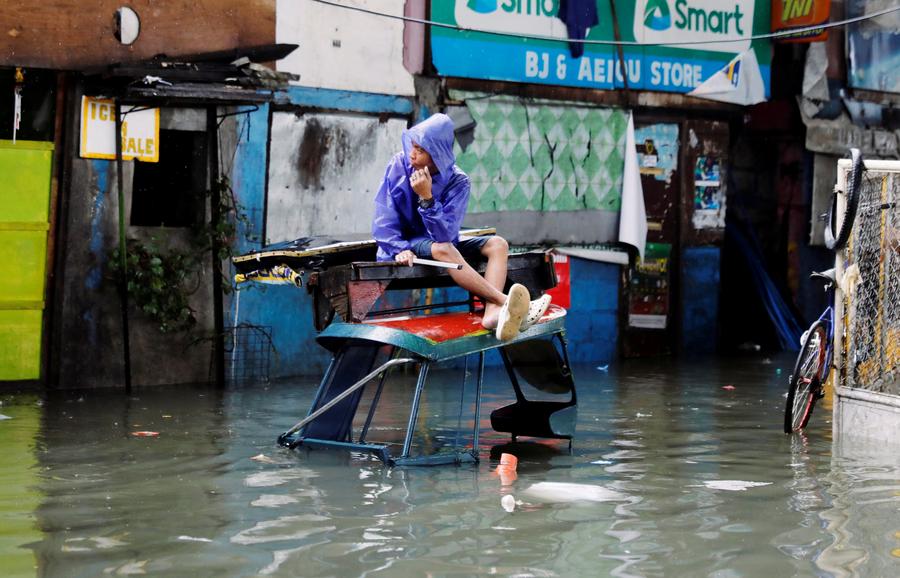
Widespread Flooding Hits Pangasinan as Typhoon Nando and Monsoon Bring Rising Waters
MALASIQUI, Pangasinan – A total of 154 barangays out of 1,364 across Pangasinan province are currently flooded due to the combined impact of Super Typhoon Nando and the intensified southwest monsoon, according to the Provincial Disaster Risk Reduction and Management Office (PDRRMO) as of 11 a.m. Wednesday. Affected areas include the municipalities of Mangatarem, Calasiao, Mapandan, Sta. Barbara, San Fabian, San Jacinto, Bautista, Binalonan, Laoac, Pozorrubio, Asingan, San Nicolas, along with the cities of Dagupan and Urdaneta. PDRRMO Emergency Operations Head Pia Flores reported that several communities are experiencing flood depths ranging from four to five feet. Evacuation efforts are underway for residents in high-risk zones. "Currently, there are 40 families, totaling 103 individuals, sheltered in evacuation centers, while 18 families (63 individuals) are staying with relatives or in alternate residences," Flores said in a phone interview. She added that these numbers are expected to rise as evacuations continue in various villages. Notably, some evacuees from Umingan and Balungao towns have returned home following a decrease in flood levels. Flores further explained, "Based on our ongoing monitoring and data analysis, water levels are anticipated to keep rising due to persistent rainfall in the mountainous regions, which leads to increased runoff flowing downstream through our river systems." A red rainfall warning remains in effect for Benguet, while Pangasinan is seeing intermittent rain showers. By 2 p.m., river gauges indicated that the Marusay River in Calasiao and the Sinucalan River in Sta. Barbara have surpassed critical flood levels. Authorities are also closely observing the San Roque Dam's water level in coordination with dam management. As of Wednesday morning, the dam stood at 270.47 meters above sea level (masl), remaining under its spillway threshold of 280 masl. Meanwhile, initial damage assessments from Typhoon Nando indicate significant losses in agricultural sectors amounting to over PHP 13 million, primarily impacting rice crops across the fourth, fifth, and sixth districts of Pangasinan. Infrastructure damages, chiefly affecting roads and bridges, have been estimated at PHP 69 million. Livestock losses, predominantly goats and cattle, reached approximately PHP 520,405. The Provincial Disaster Risk Reduction and Management Office continues to monitor the situation and coordinate response efforts as residents cope with the ongoing flooding and adverse weather conditions.
Economy
|2 min read
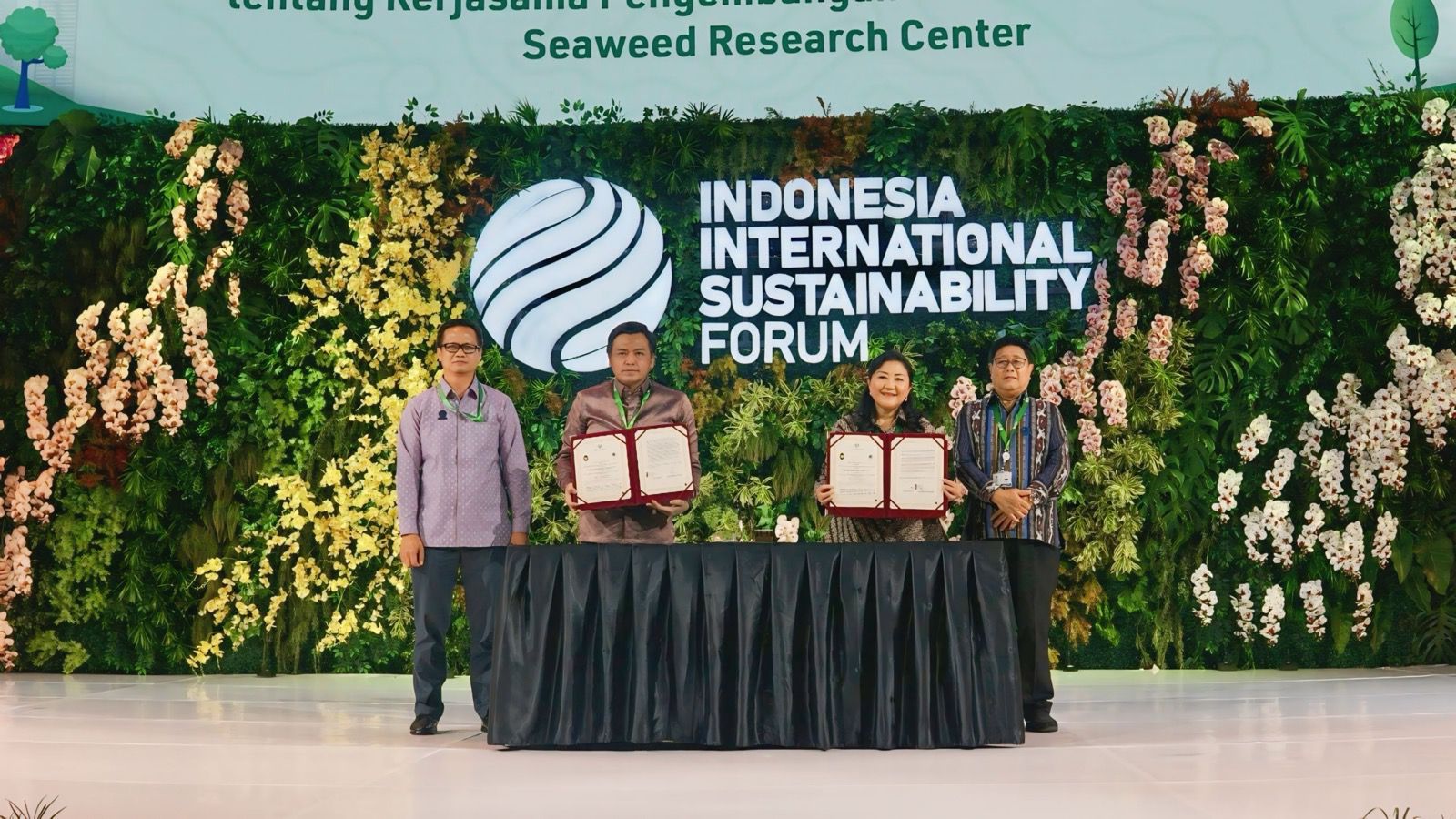
Zamboanga City and NIA Forge Partnership to Secure Sustainable Water Supply
The Zamboanga City Government and the National Irrigation Administration (NIA) are collaborating to establish a comprehensive strategy aimed at guaranteeing sustainable and dependable water sources for the city’s future needs. This partnership was solidified during a courtesy visit by NIA-Zambasulta Regional Sub-Office Acting Manager Robert Berni Rada II to Mayor Khymer Adan Olaso on Monday, September 22. The meeting focused on enhancing cooperation for the city’s Water Security Plan. As stated by the NIA-Zambasulta office on September 24, the joint initiative involves key stakeholders including the City Planning and Development Coordinator and the Office of the City Agriculturist. Discussions during the visit centered on the NIA providing technical expertise, project assistance, and institutional collaboration to support the city’s water sustainability goals. Given the pressures from rapid urbanization and the impacts of climate change, both entities emphasized the critical need for a unified approach to manage water resources efficiently for domestic consumption, agricultural use, and the well-being of future generations. The NIA-Zambasulta office remarked, \"This inter-agency effort will map out a comprehensive framework for water-related projects and initiatives.\" They further noted that the enhanced partnership represents a vital step toward ensuring that residents of Zamboanga City have access to secure and sustainable water supplies in the years ahead. The meeting also responded to a City Council resolution, initiated by Councilor Joselito Macrohon, which seeks NIA’s technical and institutional support in addressing the city’s pressing water resource challenges.
Economy
|2 min read
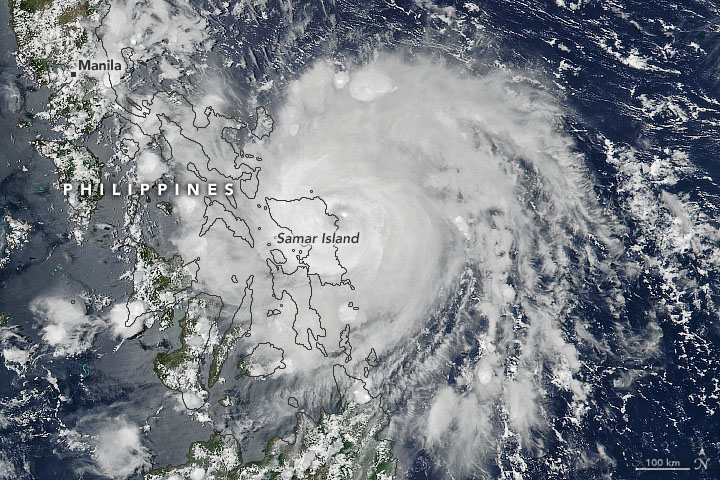
Severe Tropical Storm Opong Intensifies, Prompting Warnings Across Eastern Visayas
Severe Tropical Storm Opong, internationally known as Bualoi, intensified considerably over the Philippine Sea on Wednesday afternoon, September 24. The Philippine Atmospheric, Geophysical and Astronomical Services Administration (PAGASA) responded by issuing Tropical Cyclone Wind Signal No. 2 for sections of Eastern Visayas. In its 5 p.m. bulletin, PAGASA reported Opong’s position at 670 kilometers east of Surigao City, Surigao del Norte. The storm exhibited maximum sustained winds of 95 kilometers per hour near the center, with gusts reaching 115 kilometers per hour. It was advancing west-northwest at 20 kilometers per hour. Consequently, Signal No. 2 was raised for Northern Samar and the northern part of Eastern Samar, covering municipalities including San Policarpo, Oras, Jipapad, and Arteche. Meanwhile, Signal No. 1 was declared over Catanduanes, Camarines Sur, Albay, Sorsogon, Masbate, Samar, the remaining areas of Eastern Samar, Biliran, and northern Leyte—specifically Barugo, San Miguel, Babatngon, Tacloban City, Calubian, Leyte, Capoocan, Carigara, and Palo. PAGASA clarified that regions under Signal No. 2 could experience minor to moderate effects from gale-force winds, whereas those under Signal No. 1 may encounter minimal to minor impacts due to strong winds. The agency further indicated that the highest wind signal expected during Opong’s transit could be Signal No. 4. Forecast tracks suggest that Opong will continue moving west-northwestward, potentially making landfall in the Bicol region by Friday, September 26, either during the morning or afternoon. The storm is then expected to traverse Southern Luzon, including Metro Manila. Initially forecasted as a severe tropical storm at landfall, Opong’s recent intensification raises the possibility of it reaching typhoon status before impact. PAGASA noted that proximity to Metro Manila could necessitate raising Signal No. 3 or 4 warnings for the area. The storm is predicted to weaken somewhat while crossing Luzon but is anticipated to regain strength upon entering the West Philippine Sea, before exiting the Philippine Area of Responsibility (PAR) by Saturday, September 27. Heavy rainfall is also a significant concern. From Wednesday until the afternoon of Thursday, September 25, Northern Samar and Eastern Samar are expected to receive moderate to heavy rains amounting to 50 to 100 millimeters. From Thursday afternoon through Friday afternoon, Sorsogon, Masbate, Northern Samar, and Eastern Samar may face intense to torrential rains exceeding 200 millimeters. Other provinces such as Quezon, Marinduque, Camarines Norte and Sur, Catanduanes, Albay, Samar, and Biliran might experience heavy to intense rainfall ranging between 100 and 200 millimeters. Meanwhile, moderate to heavy rains are forecast for Isabela, Cavite, parts of Mindoro, Batangas, Laguna, Aurora, Romblon, and various Visayan provinces. The southwest monsoon (habagat), intensified by Super Typhoon Ragasa and Severe Tropical Storm Opong, will bring additional rainfall to Palawan, Antique, Iloilo, Guimaras, and parts of Negros Occidental and Oriental from Thursday afternoon to Saturday afternoon. PAGASA also issued warnings about storm surge and turbulent seas along Opong’s path. Coastal areas in Camarines Sur, Catanduanes, Albay, Sorsogon, Masbate, Northern Samar, Eastern Samar, Samar, and Biliran could experience storm surges between one and three meters within 24 hours. Seas near the eastern coasts of Northern Samar, Eastern Samar, Catanduanes, Dinagat Islands, and Davao Oriental are expected to become rough, featuring waves up to three meters. PAGASA strongly advised small vessel operators to avoid traveling under these dangerous conditions.
Economy
|3 min read
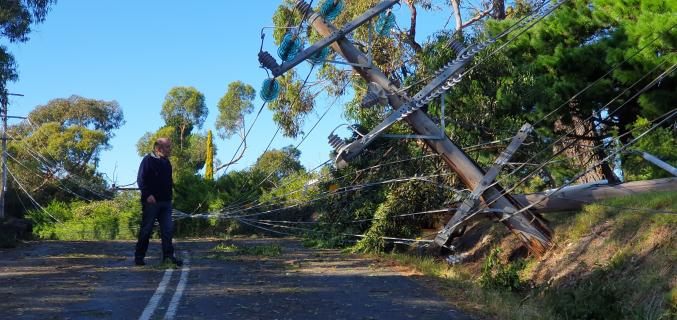
DOE Urges Proactive Energy Measures Amid Incoming Tropical Depression
MANILA – The Department of Energy (DOE) has underscored the importance of implementing proactive strategies to mitigate the effects of severe weather on the country’s energy systems. This announcement comes as Severe Tropical Depression Opong is forecasted to bring heavy rains across parts of Luzon and the Visayas within the next 24 to 48 hours. Energy Undersecretary and Task Force on Energy Resiliency chair Felix William Fuentebella emphasized the necessity of fortifying power transmission and distribution networks, particularly in vulnerable regions. He stated, \"The most important thing is to reinforce power lines in high-risk areas, enabling them to better withstand the impact of storms and minimize service disruptions. Fuel supply must also be secured, drawing from our experience from Tropical Cyclone Kristine last year, wherein the consistent heavy rainfall resulted in severe flooding and affected the fuel supply chain in Bicol.\" Fuentebella further highlighted that such preemptive actions would bolster the resilience of the country's energy infrastructure, thereby reducing the likelihood of extended power outages and interruptions to fuel availability during extreme weather events. Meanwhile, restoration works are ongoing for multiple areas affected by Super Typhoon Nando (international name Ragasa). The efforts involve electric cooperatives serving regions including La Union, Ilocos Sur, Benguet, Ifugao, Mountain Province, Abra, Cagayan I and II, Batanes, Zambales I, the Peninsula area, and Batangas II. In Batanes, repairs continue at the Basco Diesel Power Plant, which sustained damage during the typhoon. These coordinated restoration initiatives aim to expedite the return of normal energy services to affected communities. The DOE's call for enhanced preparedness among stakeholders in the oil and energy sectors reflects the government’s commitment to securing the nation’s energy stability amid increasing climate threats.
Economy
|2 min read

DSWD-Davao Disburses PHP700,000 in Stipends to Youth Interns, Expands Skills Training Initiatives
DAVAO CITY – The Department of Social Welfare and Development-Davao (DSWD-11) announced on Wednesday that it has allocated more than PHP700,000 in stipends to support 75 members of the Pag-asa Youth Association of the Philippines (PYAP) throughout the Davao Region. These stipends were granted for their participation in the Government Internship Program (GIP) covering July through September. According to the agency, each intern received a payment of PHP9,607.50 corresponding to 30 days of service rendered between June 2 and July 31. DSWD-11 highlighted that the program aims to empower young individuals by providing avenues for capacity-building, civic participation, and the development of practical skills. "This stipend serves not only as financial support but as an acknowledgment of the vital contributions of our youth in public service and community development," the department stated. In complement to the internship program, DSWD-11 has recently entered into a memorandum of agreement with the Technical Education and Skills Development Authority-Davao (TESDA-11) and the Bureau of Plant Industry-Davao (BPI-11) on September 23. This partnership is designed to deliver vocational training and livelihood programs including, but not limited to, Bread and Pastry Production. Regional Director Rhuelo Aradanas expressed optimism about the collaboration, noting that these programs are intended to enhance employability and equip young people with marketable skills. Since 2017, the tri-agency collaboration has successfully trained over 475 residents of the Regional Rehabilitation Center for Youth (RRCY) in various trades such as masonry, welding, housekeeping, motorcycle servicing, agriculture, and food services, reinforcing the commitment to youth development and empowerment.
Economy
|2 min read
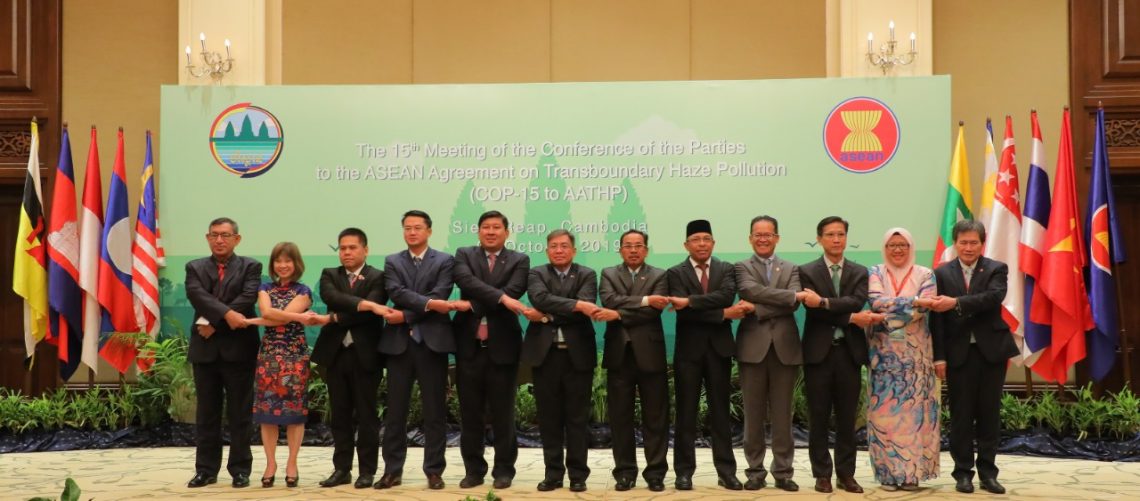
Community-Based Monitoring System Enhances Disaster Preparedness in Local Governments
ILOILO CITY – The Community-Based Monitoring System (CBMS), implemented by the Philippine Statistics Authority (PSA), is playing a crucial role in strengthening disaster preparedness among local government units (LGUs). Junavy Ricopuerto, Development Management Officer IV from the Department of the Interior and Local Government, emphasized the system's benefits during the breakout session at the 2025 Regional CBMS Convention and Data Festival held on Wednesday, September 24, 2025, in Iloilo City. She detailed how the CBMS utilizes household data collection, geotagging of facilities and government projects, and community validation to aid LGUs in crafting responsive and risk-sensitive disaster plans. "The CBMS allows us to integrate crucial data, enabling LGUs to identify and locate households most vulnerable to disasters through geotagging," Ricopuerto explained. "This leads to more precise and targeted preparedness and response strategies, fostering community participation and empowerment." PSA Regional Director Nelida Amolar highlighted the convention’s focus on leveraging CBMS as a high-impact developmental tool, providing essential data to support research and local community development. "Our goal is to encourage LGUs to employ CBMS not only for immediate community needs but also in alignment with the Sustainable Development Goals (SDGs) to be achieved by 2030," Amolar stated. She added that the convention incorporated initiatives aimed at enhancing statistical literacy among students, preparing future generations to make informed, data-driven decisions. A significant feature of the event was the unveiling of the new CBMS Portal and E-learning Platform, offering easier access to data. Amolar remarked, "CBMS is comprehensive, covering multiple poverty indicators, health, education, disaster risk, and thematic mapping, providing LGUs with indispensable tools for development planning." The ongoing CBMS initiative marks a substantial advancement in fostering resilient and well-prepared communities across the Philippines.
Economy
|2 min read
